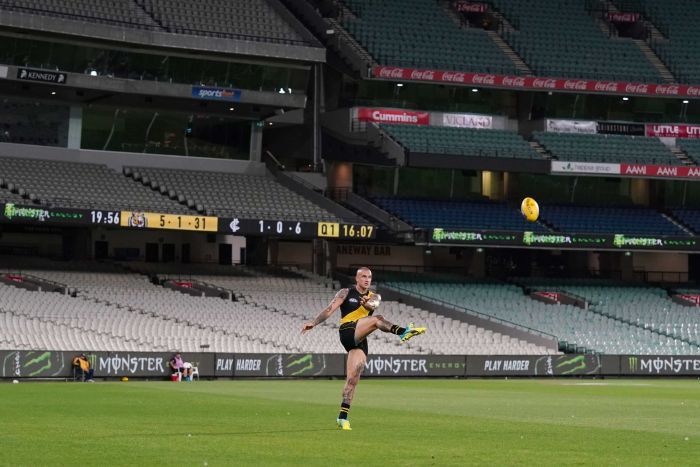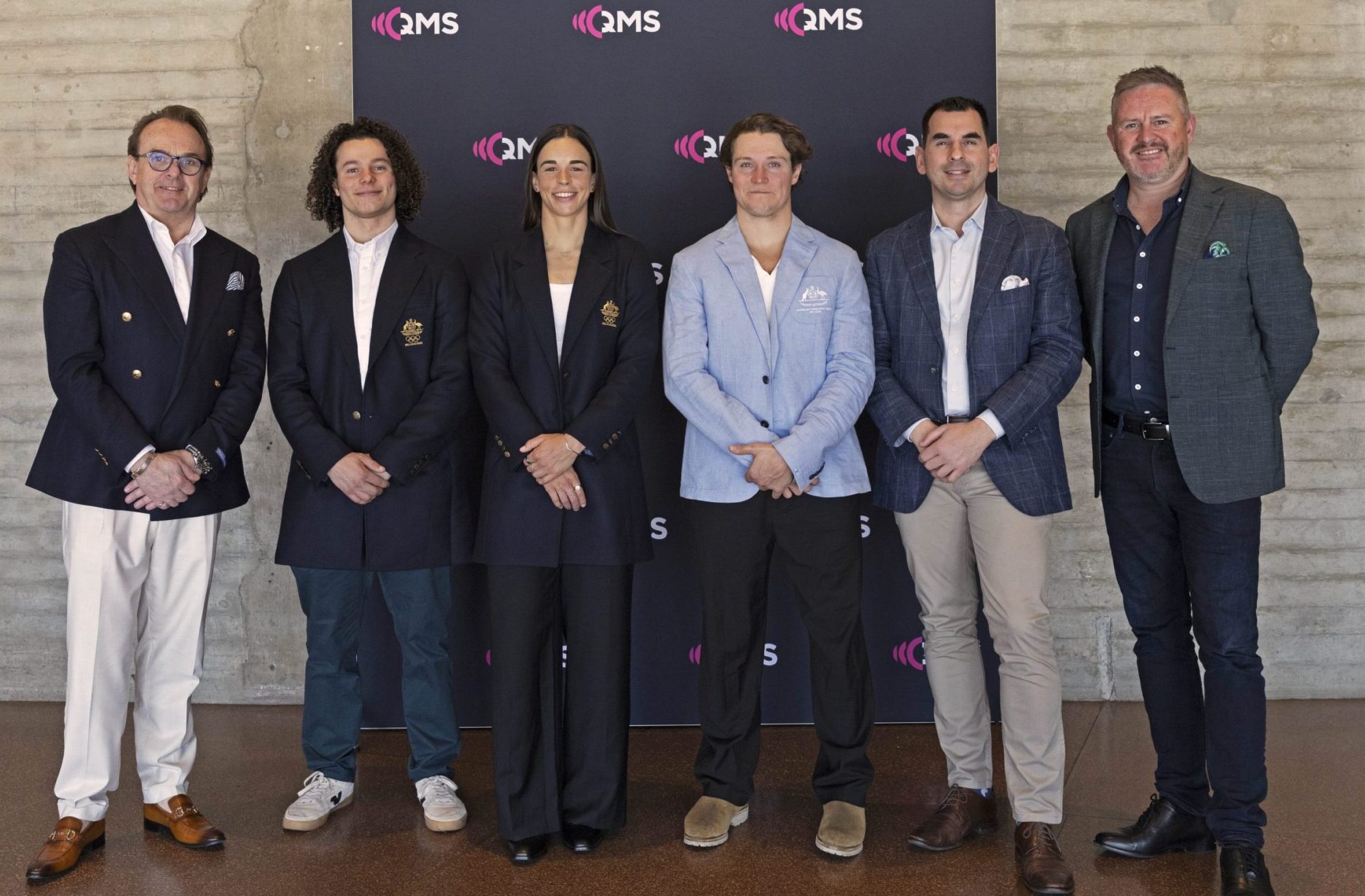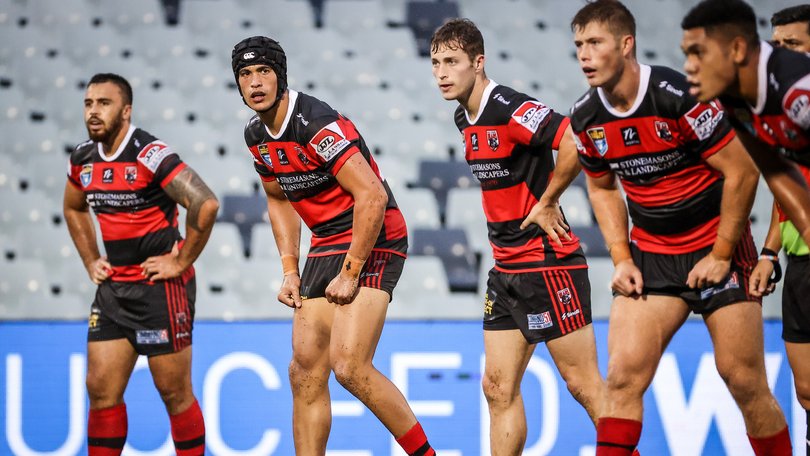Australian Sport Pay Cuts: Everything You Need To Know

Along with causing the suspension or cancellation of almost every sport in the world, COVID-19 (Coronavirus) has also forced Australia’s professional athletes to take major pay cuts.
To help deal with the blow to income that Australia’s professional sport leagues are facing with no broadcast earnings, several major sponsors suspending their payments, no ticket sales and countless other financial losses, athletes around the country are agreeing to take pay cuts of up to 75 percent.
The AFL, Australia’s wealthiest and best-attended professional sport competition, has reached an agreement with the AFL Players Association (AFLPA) that will see players accept a 50-70 percent reduction in pay depending on how long the season suspension lasts.
The agreement took five days of discussion between the AFL and the AFLPA, and afterwards led to AFL CEO, Gillon McLachlan, saying he appreciates the players being prepared to sacrifice their pays to protect the long-term health of the league.
“I want to thank the players for how they handled this,” McLachlan said.
“They have made a decision which will ensure we can keep going.
“This issue has been so complex, so fast-moving and we have been able to achieve in a couple of days, what would normally take months,” he said.
Following the AFL’s agreement, the Suncorp Super Netball league reached an agreement with the Australian Netball Players’ Association (ANPA) that will see all players withgo 70 percent of their pay for at least five-weeks.
Suncorp Super Netball CEO, Chris Symington, said he appreciates the maturity and understanding the playing group showed in reaching the agreement and supporting the league and teams.
“These are difficult and unprecedented times, not only in netball, but right across the world,” Symington said.
“The league has put measures in place to ensure that all players have well-being support during this time, and, over the next five weeks, we will have further discussions with the ANPA to determine any further changes to conditions that might need to be made,” he said.
While the AFL and Super Netball have reached agreements on pay cuts, the NRL and the Australian Rugby League Commission (ARLC) is still in negotiations with the Rugby League Players’ Association (RLPA) over the exact figure players will concede.
After initial reports NRL players were facing an 87 percent pay cut following the seasons’ suspension, ARLC chairman Peter V’landys said NRL executives will likely accept more of the losses so players will only see an approximate 75 percent cut.
Cronulla Sharks captain, Wade Graham, said the negotiations between NRL clubs, the players and the NRL have been “brutal” and the lack of clarity on the future of the competition is making the discussions much tougher.
“The fact that you can’t lock in on an actual scenario because the virus is affecting so many things, it is very complex and you need to have four or five different scenarios planned and accounted for before you can have any solid outcome,” Graham said.
“When you add in the 500 players as a collective, the 16 clubs as a collective and the NRL as a collective, there are a lot of different parties that need to reach one conclusion.
“The players have had some pretty brutal conversations with each other as to what the reality is.
“We are aligned, and we are willing to take whatever it is to see the game survive and to make sure all the clubs are standing at the end of this tough period so we continue on with the competition whatever it looks like then.
“We are not the only industry that is struggling,” he said.
While the AFL, NRL and Super Netball have taken a holistic approach to handling the issue of player pay during the COVID-19 pandemic, A-League clubs are taking the matter into their own hands after Football Federation Australia (FFA) suspended the 2019-20 season with only two months of competition remaining.
Perth Glory owner, Tony Sage, stood down the A-League clubs’ entire squad and staff, saying the club will miss out on $800,000 from their remaining four home games and he had to take drastic action to ensure the club remains solvent.
“The whole of the income structure of the league has stopped,” Sage said, in an interview with the AAP.
“The FFA has stopped the league.
“What do they expect?
“I think all 12 clubs, 11 of them playing, will be doing the same thing in the next three days.
“So what are they going to do, sue everybody?” Sage said, referencing a legal action threat from the Australian professional footballers’ union, PFA, if Sage couldn’t agree to reinstate players immediately.
PFA chief executive, John Didulica, said the PFA is prepared to react similarly if another club stands down its players.
“A fortnight ago, it was fine to relocate players to the east coast away from their families and expose them to a global pandemic,” Didulica said.
“Now, when the opportunity arises, it is considered acceptable to stop paying them.
“We are positioned to take the same course of action if any other A-League club owner elects to take this course of action in contravention of both the law and the sport’s broader needs at this time,” he said.
Rugby Australia, on the other hand, has decided to suspend pay talks with the Rugby Union Players Association pending its annual general meeting on Monday, while the code tackles a $90 million budget black hole and the halted negotiations of a new broadcast deal later this year.
Former Wallaby legend, Simon Poidevin, told The Weekend Australian he feels for the modern players who “really do face an uncertain future”.
“Rugby has gone into this catastrophe with the weakest possible balance sheet,” Poidevin said.
“I can’t see the game surviving its current state without government assistance.
“The government may also propose a proper restructuring of the game,” he said.
While the Coronavirus has a tight grip on the Australian sporting landscape, this is only a snapshot of the once-in-a-lifetime devastating effects this global pandemic is having on the entire world.
Professional athletes are not the only ones missing out on pay, as Al Jazeera reported an estimated one million people lost their jobs in Australia in one night alone, following the closures of pubs, cinemas, restaurants, gyms and other non-essential services.
With all the uncertainty and devastation COVID-19 has caused around the world, one thing is for certain, an unwavering strength to endure, recover and grow is essential for every business, community and individual in these difficult times.
It's free to join the team!
Join the most engaged community in the Sports Business World.
Get all the latest news, insights, data, education and event updates.






